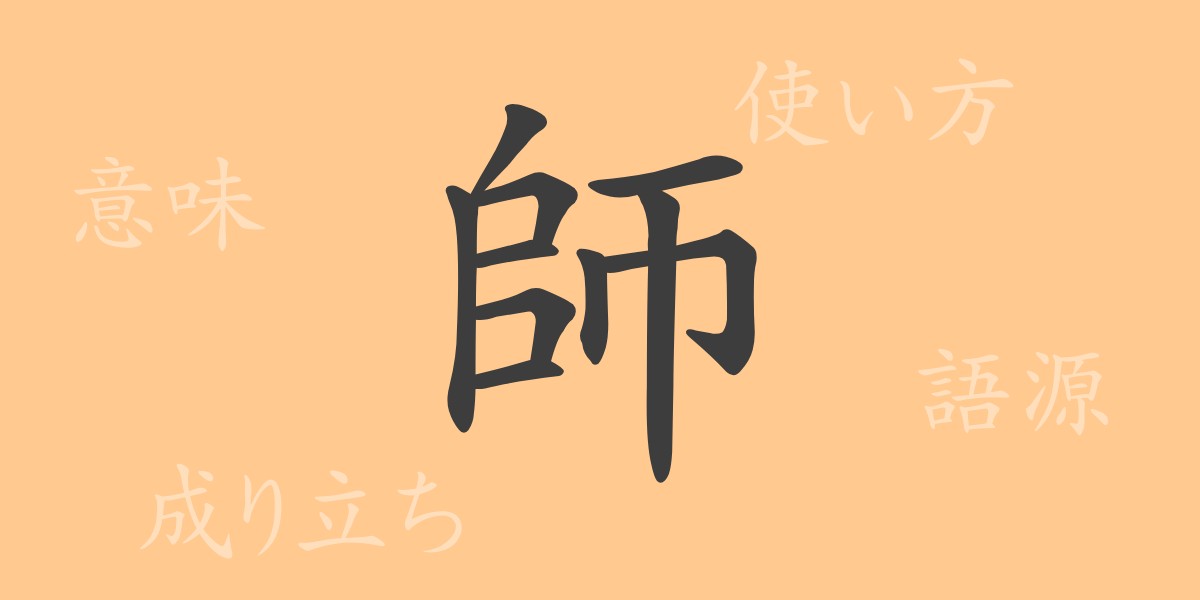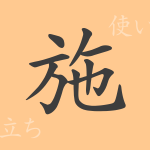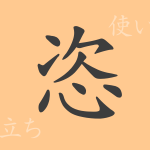Japanese written culture is deep, with each kanji character embedded with rich history and meaning. The kanji “師(し)” is no exception. In this article, we delve into the origins, modern usage, and idiomatic expressions related to “師(し)” to explore the charm of this character.
Origin of 師(し) (Etymology)
The kanji “師(し)” has ancient origins, composed of “示(しめすぶん)” meaning divine rituals or prayers, and “𠂤(ひとがしら)” representing a person. Together, “師(し)” originally referred to someone serving the gods, such as a leader or teacher. Throughout history, “師(し)” has come to symbolize an important role as a guide and educator.
Meanings and Uses of 師(し)
The kanji “師(し)” primarily refers to a leader, teacher, or expert in a particular field. It is used to denote individuals who impart knowledge or skills. Additionally, it can refer to a commander in the military or a monk, showcasing its versatility across various contexts.
Readings, Stroke Count, and Radical of 師(し)
The kanji “師(し)” has several readings, with the most common being the on’yomi (音読み) reading “し”. There is no specific kun’yomi (訓読み) for this character.
- Readings: On’yomi “し”
- Stroke count: 10 strokes
- Radical: 巾(はば), meaning cloth
Idioms, Phrases, and Proverbs Using 師(し)
Here are some common idioms and phrases that include “師(し)”:
- 師資(しさい): The relationship between teacher and student, or people involved in education.
- 師弟(してい): The relationship between teacher and student.
- 名師(めいし): A teacher with outstanding talent in arts or academics.
- 兵法師範(へいほうしばん): An expert in martial arts or military strategy.
- 師の影を踏まず(しのかげをふまず): A phrase expressing deep respect for one’s teacher.
Conclusion on 師(し)
The kanji “師(し)” has been deeply rooted in Japanese culture from ancient times to the present, symbolizing respect and education. Whether referring to school teachers or martial arts instructors, this character has played a crucial role in passing down expertise and nurturing future generations. The profound meaning and value of “師(し)” will continue to be inherited by many.

























